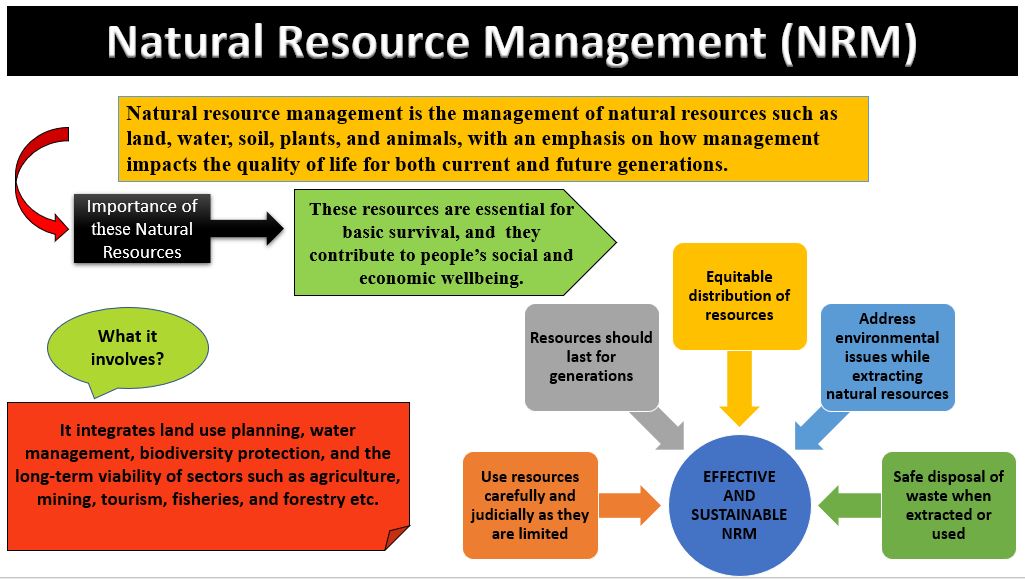Natural Resource Management (NRM)

Natural resources are substances or aspects of the environment that exist naturally (physical or biological). Natural resources, such as timber, water, fertile land, animals, and minerals, may be utilized and hence represent real or prospective sources of income that occur in their natural condition. Natural resource management to fulfil people's needs has been done since the pre-Vedic era. Natural resource management is the process by which communities control the supply and access to existing natural resources.
Natural resource management (NRM) is concerned with the sustainable use of primary natural resources such as land, water, air, minerals, forests, fisheries, and wild flora and fauna. All of these resources work together to offer an ecosystem service that improves the quality of human existence. Human, social, economic, and environmental advantages are all part of the four pillars of sustainability. In all of these cases, environmental sustainability seeks to promote human well-being by safeguarding natural wealth. Natural capital in this context refers to air, land, water, minerals, forests, and so on. NRM programs and efforts are ecologically sustainable because they ensure that present population requirements are satisfied without jeopardizing future generation needs. NRM places a premium on achieving good results while causing no short- or long-term harm to the environment or the natural and free resources available for use. In reality, every culture of a social system is the product of individuals acting to live and attempting to maximize the use of available resources. As a result of being a stakeholder of this system, we will continue to be aware of and manage our natural resources.
Our Reports:
1. 10 ENVIRONMENTAL CHANGEMAKERS IN INDIA. Access Link>> Enviro Vigyan - Home